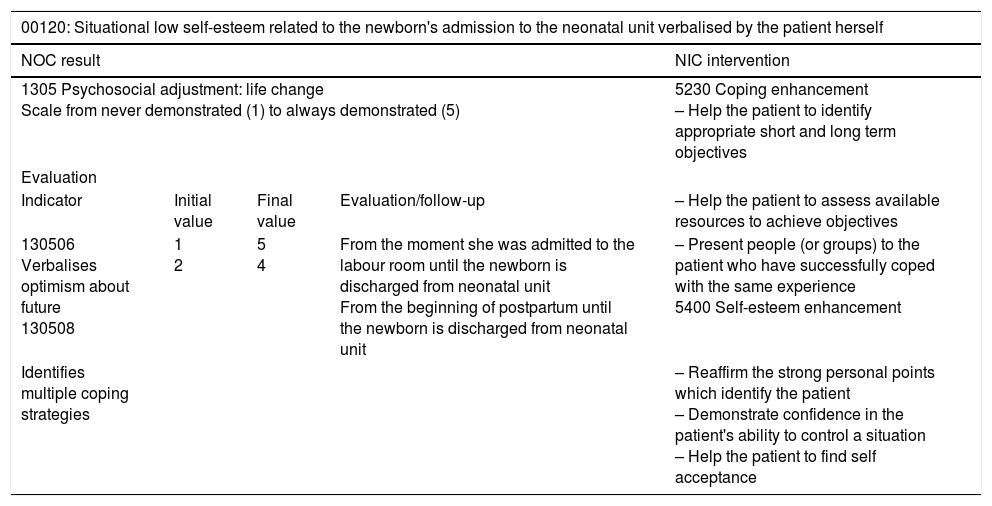We present a clinical case of a premature birth from a mother of 33+5 weeks gestation where the newborn was admitted to the neonatal unit due to her low weight, chest retraction and prematurity, despite an Apgar score of 8/9/10 and birth weight of 1300g. The team of midwives that attended the woman from her arrival performed an assessment according to Virginia Henderson's Needs. Nursing diagnoses for the mother of Situational low self-esteem and Deficient Knowledge were established, and of Ineffective thermoregulation for the newborn infant.
The care plan was based in great measure on the Kangaroo-mother care method which was started in the neonatal unit, and adapted to the needs and care required by the newborn infant. The method enabled the parents to cope with the situation in a better way and the vital signs of the infant to be maintained.
Se presenta un caso clínico en el que tras un parto prematuro de una gestante de 33+5 semanas de gestación, la recién nacida es ingresada en el servicio de neonatos por bajo peso, prematuridad y tiraje a pesar de un Apgar 8/9/10 y un peso de 1.300 g en el nacimiento. El equipo de matronas que atendió a la mujer desde su llegada realiza una valoración según las necesidades de Virginia Henderson. Se identifican como diagnósticos enfermeros de la madre baja autoestima y conocimientos deficientes y para la recién nacida se identifica termorregulación ineficaz. Se realiza un plan de cuidados basado en gran medida en el método madre canguro, que se inicia en el Servicio de Neonatos, adaptándose a las necesidades y los cuidados que la prematura requiere. El método logra que los padres afronten la situación de una mejor forma y también permite mantener adecuadamente las constantes vitales de la prematura.







